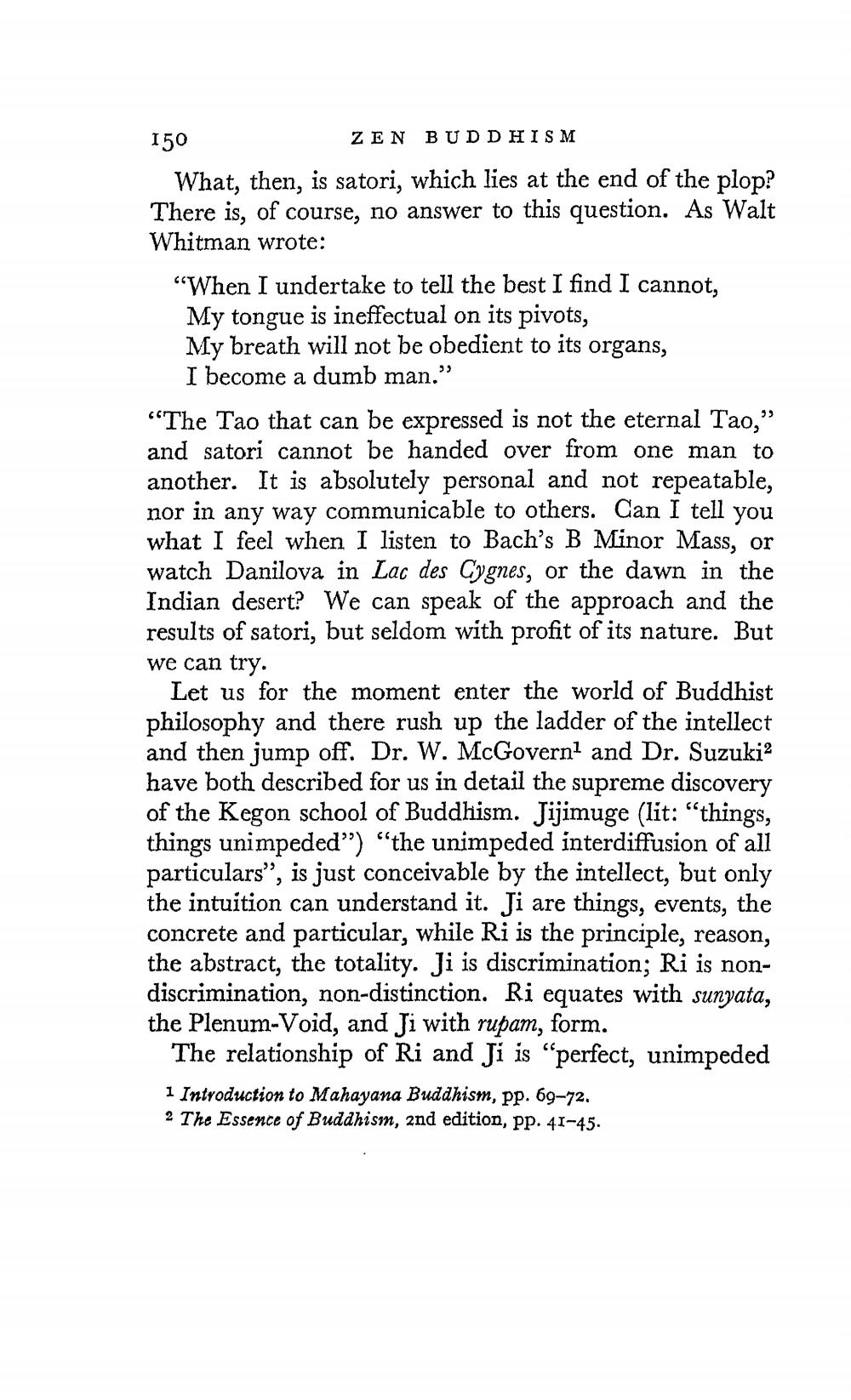________________
150
ZEN BUDDHISM What, then, is satori, which lies at the end of the plop? There is, of course, no answer to this question. As Walt Whitman wrote: “When I undertake to tell the best I find I cannot, My tongue is ineffectual on its pivots, My breath will not be obedient to its organs,
I become a dumb man." “The Tao that can be expressed is not the eternal Tao," and satori cannot be handed over from one man to another. It is absolutely personal and not repeatable, nor in any way communicable to others. Can I tell you what I feel when I listen to Bach's B Minor Mass, or watch Danilova in Lac des Cygnes, or the dawn in the Indian desert? We can speak of the approach and the results of satori, but seldom with profit of its nature. But we can try.
Let us for the moment enter the world of Buddhist philosophy and there rush up the ladder of the intellect and then jump off. Dr. W. McGovern? and Dr. Suzukio have both described for us in detail the supreme discovery of the Kegon school of Buddhism. Jijimuge (lit: "things, things unimpeded") "the unimpeded interdiffusion of all particulars”, is just conceivable by the intellect, but only the intuition can understand it. Ji are things, events, the concrete and particular, while Ri is the principle, reason, the abstract, the totality. Ji is discrimination; Ri is nondiscrimination, non-distinction. Ri equates with sunyata, the Plenum-Void, and Ji with rupam, form.
The relationship of Ri and Ji is "perfect, unimpeded 1 Introduction to Mahayana Buddhism, pp. 69–72. 2 The Essence of Buddhism, and edition, pp. 41-45.




